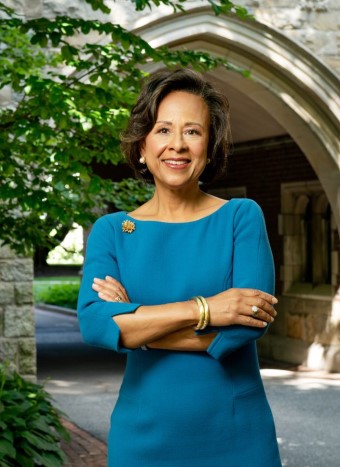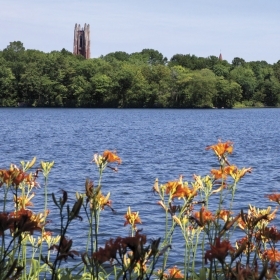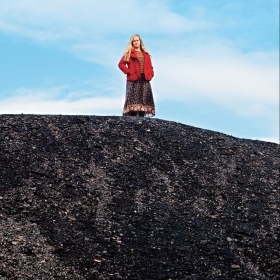
This past October, I was thrilled to announce a historic initiative designed to create a more energy-efficient and sustainable campus. This $24 million effort, approved by the Board of Trustees, will enable Wellesley to significantly reduce greenhouse gas emissions through an array of energy conservation measures designed to combat global warming.
This is an important accomplishment—and one that could only come to pass through a remarkable collaborative effort. Established by the Board of Trustees, our Power4Women task force brought together a diverse range of voices and perspectives. Along with board members, it included faculty, administrators, and students. Over the course of a year, its 15 members explored options and hammered out the broad outlines of the plan that will carry us forward.
As part of the task force, I had a front-row seat to its deliberations. Throughout, I was awed by how its members approached their charge—by their insight, passion, commitment to civility, and dedication to learning.
I’ve been thinking about this a lot lately—and, more broadly, about how we can bring more of this same spirit both to our campus and to the world. How can we cultivate the qualities that the Power4Women task force so beautifully embodied?
The book Practice for Life—authored by our own Professor Lee Cuba and Senior Lecturer Joseph Swingle, along with two Bowdoin colleagues—explains how college is an opportunity to test drive behaviors and skills related to decision-making. “Colleges are both ‘real life’ and practice for the adult life that comes after college,” the book asserts.
In the workings of the Power4Women task force, I saw how potent this can be. I watched task force members with different views learn from each other and seek out common ground. I watched them balance today’s needs against those of future generations. I watched them grapple with hard choices, applying analytic deliberation to pressing real-world problems.
I also watched them turn crisis into opportunity, one of life’s most valuable skills. In the summer of 2018, Wellesley’s 24-year-old power cogeneration plant failed, giving new urgency to the task force’s work. Weighing the pros and cons, the task force opted against expensive repairs to the existing plant, instead proposing to work with Wellesley Municipal Light and Power to more readily increase the proportion of renewable electricity it provides to the College. This is the path we’re taking.
As a result of this and other measures recommended by the task force—much more about these later in this magazine—we are making major strides toward the greenhouse gas emission reduction goal established by the Board of Trustees in the College’s 2016 Sustainability Plan. With this new investment, we hope to achieve the Sustainability Plan’s 2026 greenhouse gas emissions reduction goal perhaps as early as 2021, five years ahead of schedule.
This is a true Wellesley success story, and one that has implications far beyond our campus. As I write these words, the state of California has been ravaged by wildfires, with dozens dead and hundreds more yet to be accounted for. This past year has also seen record flooding and other natural disasters, both in the United States and around the world. The fall of 2018 saw the release of two major reports—one from a United Nations panel, one from 13 U.S. federal agencies—both warning that the consequences of climate change are far more dire and immediate than widely appreciated, posing grave dangers to health, the environment, and global economies.
Thanks to the work of so many, Wellesley is now well on the way to our ultimate goal of carbon neutrality, a reflection of our commitment to environmental sustainability. The next phase of this effort will be spearheaded by a new Board of Trustees working group with the name E2040. Like the task force, it will be composed of faculty, administrators, students, and trustees, and I have no doubt its members will do much to build on our accomplishments to date.
But perhaps even more significant is how these efforts are preparing students to be effective advocates and changemakers throughout their lives. In the act of coming together across differences to solve hard problems, in learning to effectively deploy our gifts for the greater good, we develop the tools and talents of democratic citizenship.
Never has this been more important. As I watch the next generation of Wellesley women prepare to make a difference in the world, I am struck by how much our world needs what they have to offer. And as the Power4Women task force reminded me once again, there are few greater joys than to watch them practice sharing their gifts.







We ask that those who engage in Wellesley magazine's online community act with honesty, integrity, and respect. (Remember the honor code, alums?) We reserve the right to remove comments by impersonators or comments that are not civil and relevant to the subject at hand. By posting here, you are permitting Wellesley magazine to edit and republish your comment in all media. Please remember that all posts are public.